#Elizabeth Morris
Explore tagged Tumblr posts
Text
Hellsing OC Masterpost
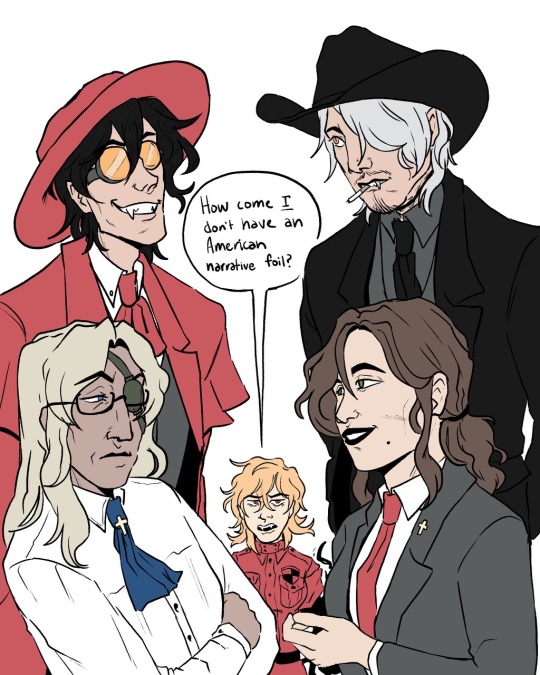
(Sorry if this post makes zero sense..)
The general premise:
The Doctor was actually somewhat successful in his endeavors (aka, some things do survive the fire Walter starts, just not all); through some sort of fireproof safe or capsule that had kinda the bare minimum of the information of what they were doing.
Flash forward many years later, some individual (name still undecided) knows about the US Cabinet being attacked by vampires instead of just normal terrorists (most likely through witnessing) and goes into a deep dive, pretty much just locking themselves in a room and obsessing for years over ever nitty-gritty detail they possibly can get their hands on to learn more about Millenium.
This individual becomes extremely good at hacking and eventually starts getting into US and UK government files, finding out the existence of Hellsing, Morris Co, the London Attacks. (Which, we know some files of these do exist, as we see Penwood Ill studying them before sparring Integra at the end of ultimate)
Eventually in their search, they find The Doctor's notes on creating artificial vampires, and their plan to create a weapon as powerful as Alucard. They feel this is exactly what they were looking for, and decides to try to recreate millennium's work.
They recruit people using the internet (think like, the riddler from the 2022 Batman movie) and effective create their own terrorist organization. At some point, they download their consciousness to a computer in an attempt to become untouchable. They believe that that vampires are superior to humans in every way, and want to take over the world to create a society where vampires reign and humans are just livestock.
By the year 2031 (so pretty soon after Alucard comes back), they are slowly being found out, as missing people from the US are unexplainably showing up in Britain as ghouls/vampires (and vice versa, but not explained until later).
Hellsing decides to go to America to investigate, Quickly Gets Figured Out by the Air Traffic Control because it is no longer the 90s and air traffic is much more strict now.
Since Hellsing works under the British crown, Integra is told Hellsing is able to investigate in the states under one condition: they work alongside America's own vampire hunting operation: Morris Co.
(The characters of Morris Co are meant to be ‘mirrors’ of those in the Hellsing organization.)
Morris Co:
(Since Quincey Morris was shown being dead at one point; I basically just added in ‘he left behind a son’ and made Quincey Morris a widower (which is why he proposed to Lucy))
Morris Co is a very similar organization to Hellsing, dealing with any supernatural threats that threaten the US. It was founded by Quincey Morris, and gained a reputation after he captured and sealed away ‘The Headless Horseman.’ After Quincey’s death assisting Abraham Van Hellsing in capturing Dracula, his son, James Morris, took over the company.
Inspired by the the Hellsing Organization’s idea of using Count Dracula (Alucard) as their own personal weapon, James decides to unseal the monster his father had captured for the same purpose. He coins the name ‘Bishop,’ which the horseman uses from then on.
The present-day head of Morris Co is Elizabeth Morris, the granddaughter of Quincey Morris. The organization works closely with the CIA, and receives large sums of money from the government.
Elizabeth Morris:
As stated before, Elizabeth Morris is the head of Morris Co as Quincey Morris’s ancestor.
Unlike Integra, she keeps a much more hospitable and ‘professional’ attitude, similar to talking to someone in an office setting.
Her position as a leader is completely influenced by her father, as she blindly does everything in a way that she thinks he will approve of rather than her own opinion. Her father is willing to put her men and civilians lives in danger for the sake of protecting Morris Co’s reputation and continue receiving government funding, and in turn so is she. Slowly over time it would become apparent that she isn't truly passionate for the cause, but rather she fulfills the role her father set for her because she feels like she has to.
She serves as Integra's mirror as someone with questionable authority and blind devotion to her father, which contrasts Integra's strong leadership and independence.
Bishop:
Bishop is Morris Co’s ‘Trump Card,’ a willpower vampire that once roamed the west under the title of ‘The Headless Horseman.’ (More notes on how that works in the pic)
Bishop’s backstory follows a similar story to the story of the Headless Horseman, an American Revolutionary War soldier gets his head blown off by a canon in the battlefield. However, all the blood flows to him and he becomes a Willpower Vampire, and his head regenerates ‘wrong’ (like Seras’s arm). He spends many years wandering around the US as an undead legend before being defeated by Quincey Morris. He is sealed away in a locked coffin for many years before James Morris unsealed him.
He can take the head of a dead human and ‘posses’ it, to which the human’s features will contort to his own. However, the hair will always be white no matter what form he takes (like he had gotten marie-antoinette syndrome). This is why he’s seen with a perfectly normal head with a ‘seam’ at the neck.
He is under a much tighter leash than Seras and Alucard are: he does not talk back or push buttons, (in fact he doesn’t speak unless spoken to) he and Elizabeth only talk to each other in a very professional manner, and he is sealed away in a casket locked from the outside unless he is needed for something. Bishop lives at the base 24/7, while Elizabeth has a true house near it.

His treatment is made to remind Alucard of how he was most likely treated by Abraham and/or Arthur. He is Alucard’s mirror as a character at war with his own desires for blood whose humanity slowly starts to show in small ways similar to what we see in Alucard in Ultimate; though his worldview are very 'similar but opposite’ to Alucard’s as they are mainly based around humanity’s greed rather than it’s struggle for power. He'd mainly serve as a way to push Alucard to directly question his old self post time-skip.

#hellsing#my art#hellsing ocs#hellsing oc#hellsing Integra#alucard hellsing#seras hellsing#hellsing ultimate#Bishop#Elizabeth Morris#Morris Co
249 notes
·
View notes
Text
my ocs😭😭😭😭😭😭my shaylas😭😭😭😭💔💔💔💔💔💔I'm being nicer to them as if recently
now time to see how many I can fit in the tags
#george harris#charles peale#Jean-Louis Paul Marquis De Lorraine-Lillebonne#elizabeth morris#blodyn lelog#joan smith#beatrix#miguel#james sanders#zero#john smith#edward harris#william harris#pascal demojo#rei ceinder#morea#lilya hart#quacey#ileen#aderyn gale#bbc ghosts#amrev#second continental congress#pokemon#ocs#only edward and william are related out of the shared surnames#< brothers#and quacey and ileen are cousins#gonna reblog into my community thats my oc safe
3 notes
·
View notes
Text
Décimas
De noche muestra la luna, su rostro alumbrado y triste.
El cielo al fin se desviste, la muerte mece su cuna.
Que al fin la mala fortuna se vaya a dormir un rato, se quite traje y zapatos, se olvide mi existencia.
Que yo frente a su sentencia declaro mi desacato.
0 notes
Text

Detail from the embroidery piece Angel Minstrel with Cymbals (c. 1885), by Elizabeth "Bessie" Burden, based on her brother-in-law William Morris’s 1880s design for stained glass.
#art#artworks#artwork#embroidery#textiles#textile art#19th century#19th century art#medieval inspired#women in art#women artists#female artists#elizabeth burden#stained glass art#stained glass#william morris#religious art#christian mythology#angels in art#angels#musical instruments#musical instrument#classical instruments
349 notes
·
View notes
Text


Some of the Pre Raphaelite artwork at Wightwick
#art#pre raphaelite#pre raphaelism#dante gabriel rossetti#elizabeth siddal#dark academia#dark academia aesthetic#art history#british art#wightwick manor#Victorian#victorian aesthetic#william morris#edwardian#arts and crafts
426 notes
·
View notes
Text

THE SCOTTISH FAIRY BOOK by Elizabeth W. Grierson (New York: Stokes, 1910) Illustrated by Morris Meredith Williams.
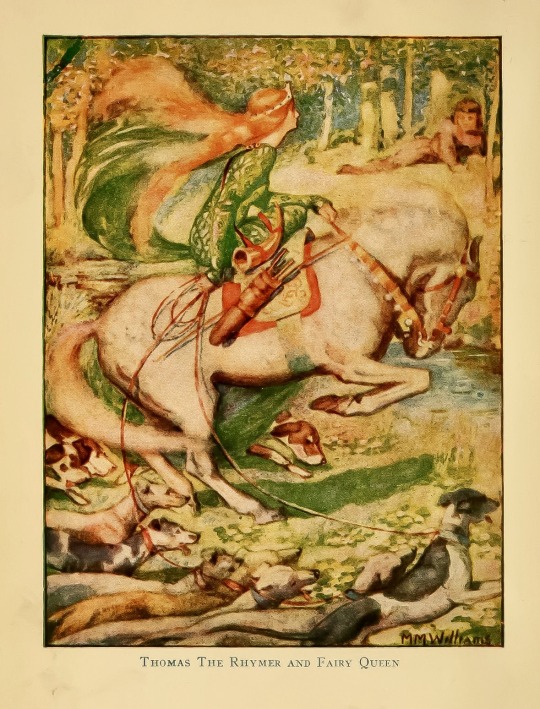
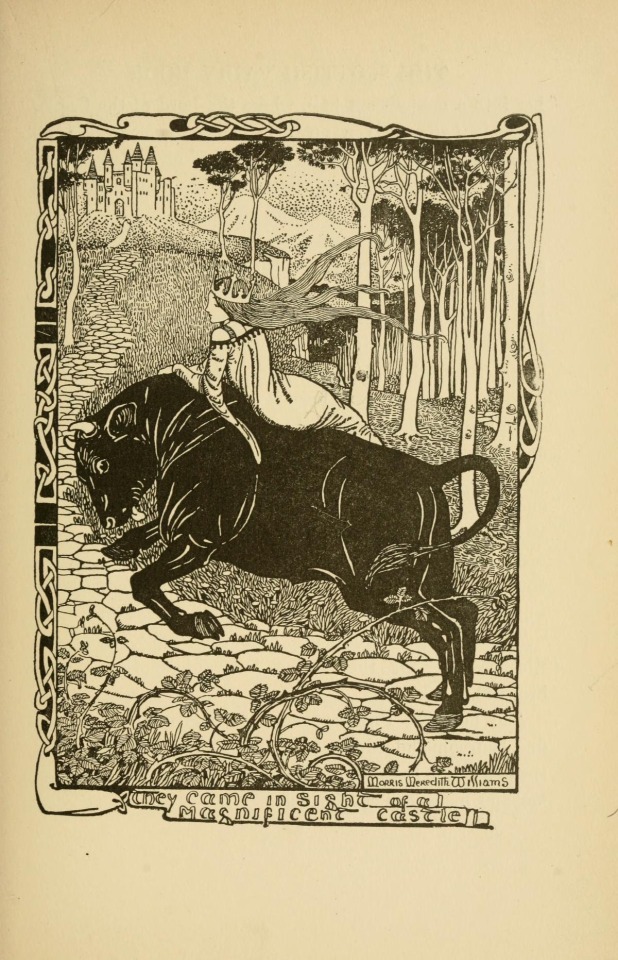
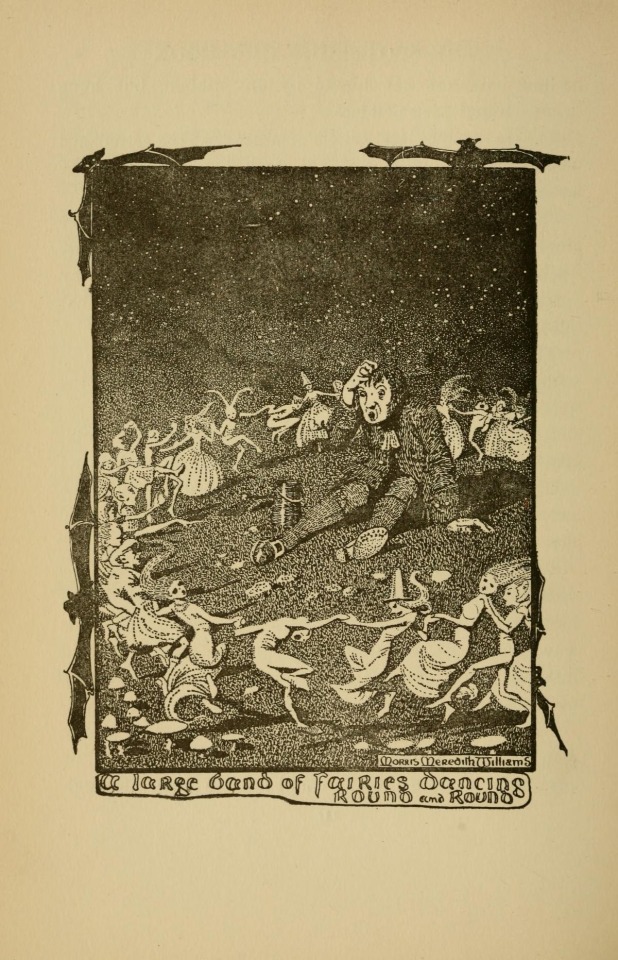

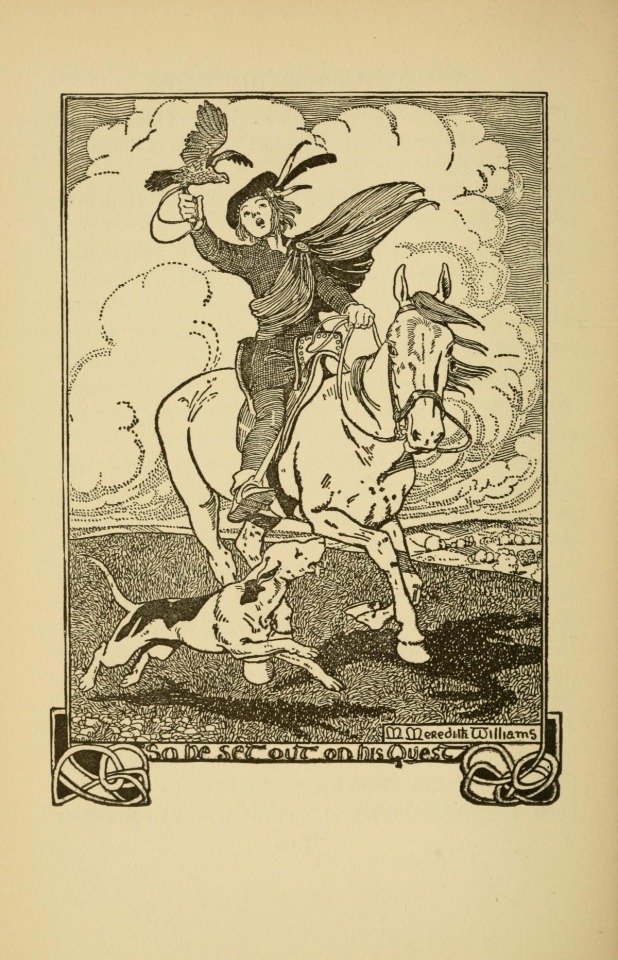
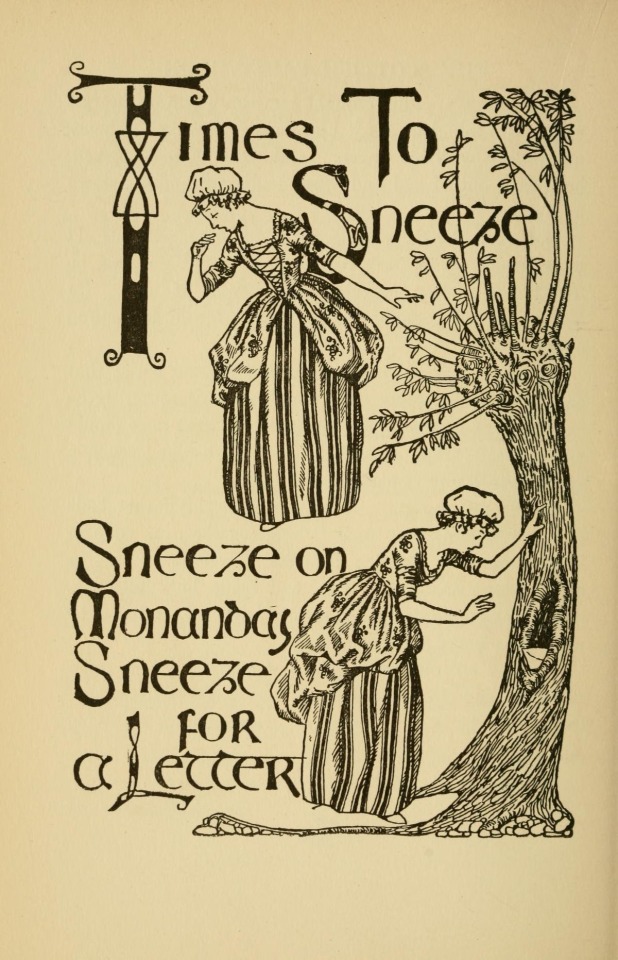
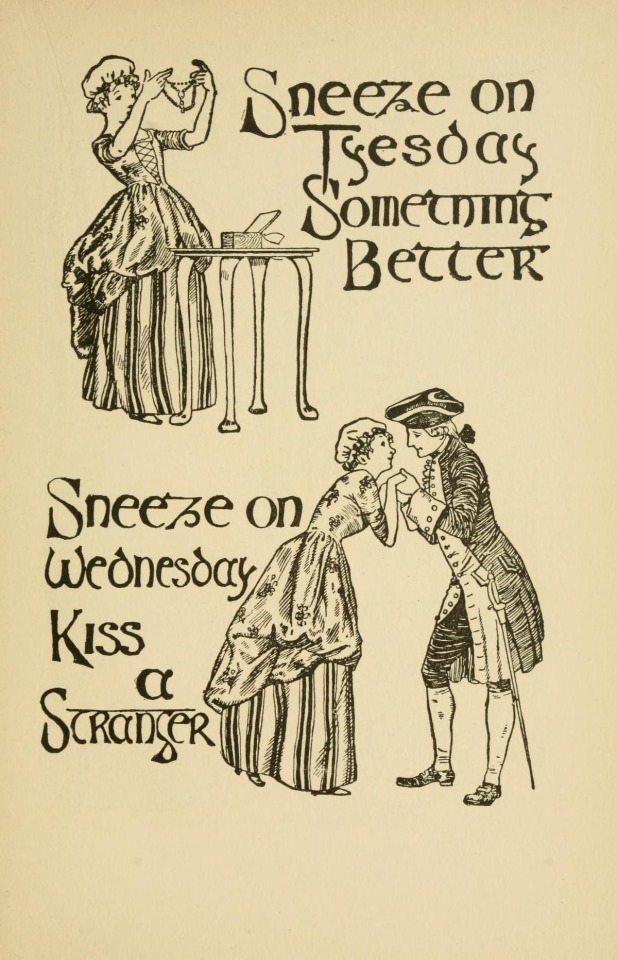
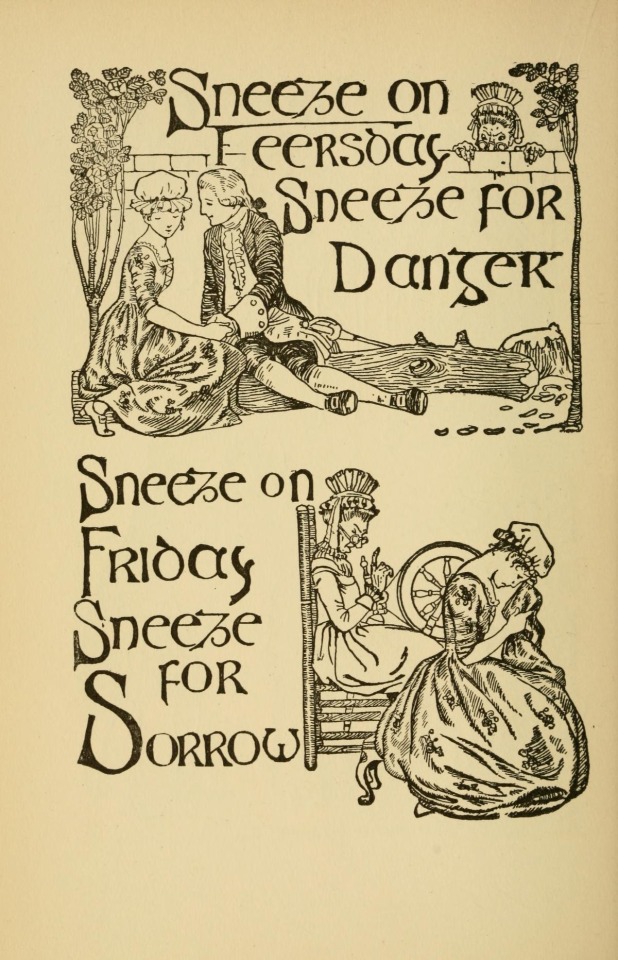
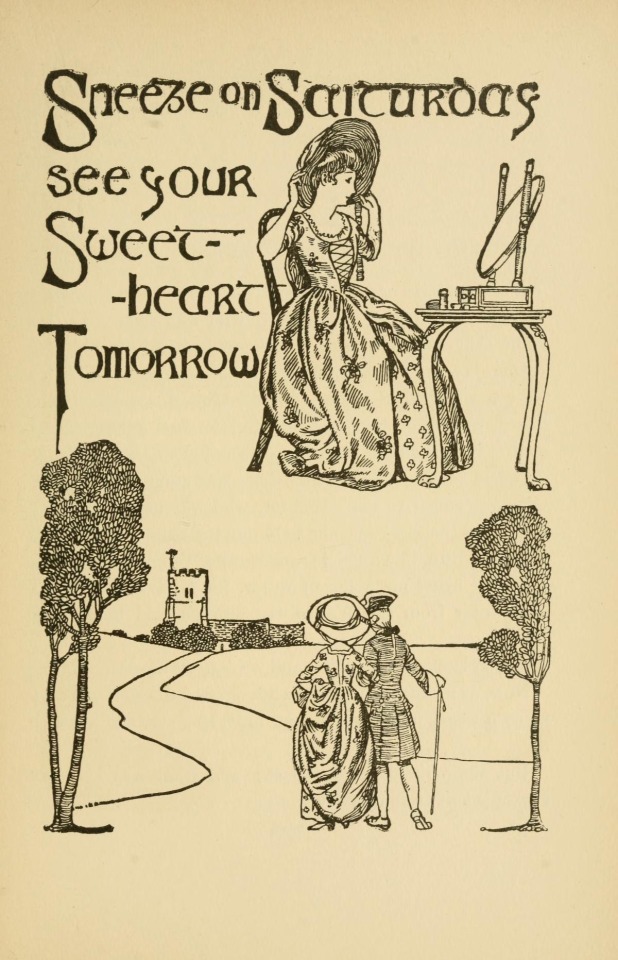
source
#beautiful books#book blog#books books books#book cover#books#vintage books#illustrated book#children’s book#book design#fairy tales#scottish#edwardian#morris meredith williams#elizabeth grierson
228 notes
·
View notes
Text
all my mutuals have an artistic victorian woman they're woefully bonded to for life. mine's elizabeth barrett browning.
#i know for a fact that i have elizabeth siddal and jane morris mutuals.#but guys. tell me which victorian woman artist or muse you're attached by a cord of communion to.
64 notes
·
View notes
Text
Elizabeth Siddal & Jane Morris
Pre-Raphaelite models as artists in their own right


Photographs of Elizabeth Siddal (left) and Jane Morris (right)
Elizabeth Siddal and Jane Morris are mostly known as artists' models for the Pre-Raphaelite Brotherhood, representing the ideal of feminine beauty for the movement.

Elizabeth Siddal famously modelled for John Everett Millais's Ophelia (1852)


Jane Morris in paintings by Dante Gabriel Rossetti: Proserpine (1874) + The Daydream (1880)
But both women were also artists themselves.
Elizabeth Siddal
In the paintings and drawings she modelled for, Siddal is never depicted as looking directly at the viewer. Instead, she is languid and lovely, gazing off dreamily into the distance or closing her eyes, like in the examples below.


Elizabeth Siddal in paintings by Dante Gabriel Rossetti: Regina Cordium (1860) + Beata Beatrix (1870)
Her self-portrait, however, presents a fascinating contrast.

Elizabeth Siddal's self-portrait (1854)
Her expression is stony and her gaze is direct. She knows you're looking, and she's looking right back. It reminds me of the Agnès Varda quote,
“The first feminist gesture is to say: OK, they're looking at me. But I'm looking at them.”
Here are some more of Siddal's own paintings below.
Her style is distinct and striking.




Lady Clare (1857), The Quest of the Holy Grail (1855), Clerk Saunders (1857), Holy Family (1856)
Jane Morris
Jane Morris was not a painter herself, but an embroiderer, bookbinder, and calligrapher.
She came from a working-class background and only received an artistic education as an adult, after she married William Morris.
Unfortunately, not much of her work survives, or can be definitively attributed to her, but the two floral patterns below reveal her skill with the needle.


#pre-raphaelite art#pre-raphaelite#pre raphaelite#jane morris#elizabeth siddal#19th century art#victorian era#pre raphaelism#women's history#women artists#women's art#art history#embroidery#textiles#dante gabriel rossetti#john everett millais#preraphaelite#long post#depictions of women
47 notes
·
View notes
Text
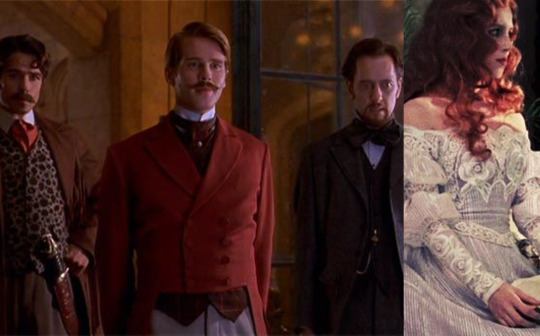
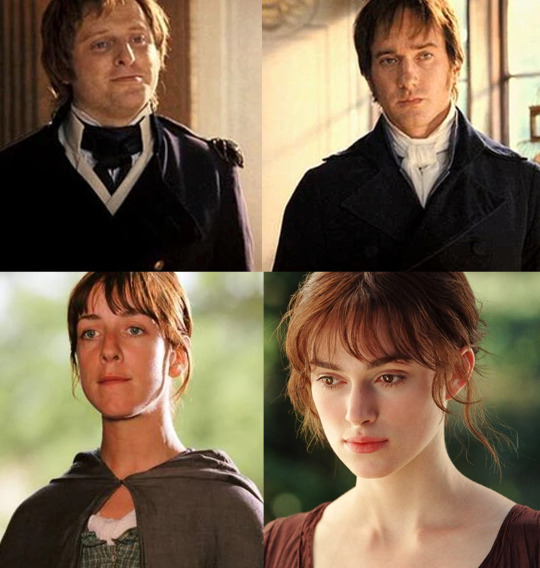
Anti-Propaganda is not allowed. Please only give reasons to vote for something and not give reasons to vote against something.
#poly four or more tournament#lucy westenra#arthur holmwood#john seward#quincey morris#dracula#charlotte lucas#elizabeth bennet#colonel fitzwilliam#fitzwilliam darcy#pride and prejudice
46 notes
·
View notes
Text
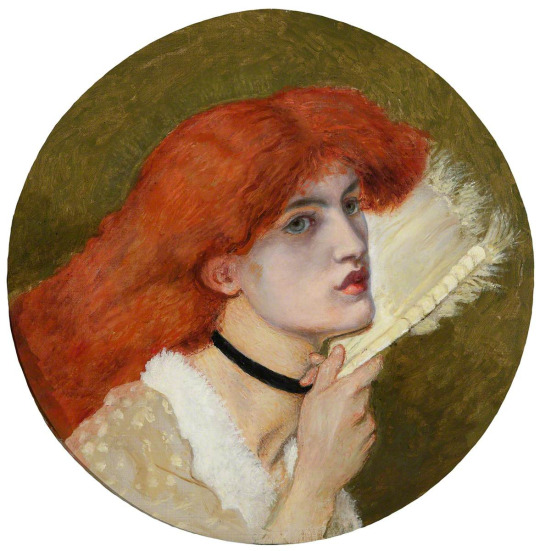
A portrait of Jane Morris with the red hair of Elizabeth Siddal, found unfinished in Dante Gabriel Rossetti's studio at the time of this death.
#pre raphaelite#pre-raphaelite#preraphaelite#art#art history#dante gabriel rossetti#rossetti#jane morris#elizabeth siddal
70 notes
·
View notes
Text

Finally finished Elizabeth’s ref!
24 notes
·
View notes
Text



Greg Morris, Elizabeth Montgomery, Allen Ludden, and Tom Kennedy are the contestants in the 1974 episode of “Password” hosted by Monty Hall.
30 notes
·
View notes
Text

KURT!!!!!!
This is actually not finished yet, this is supposed to be a Klaine piece that I did which was inspired by a jive I saw on tv. I'm also going to make a Britanna version so stay tuned for both of those! for right now just have a kurt (got a lil lazy w/ the left hand cause it's not gonna be in the final version since he'll be moved to the side to make room for blaine)
#glee#glee 2009#glee tv show#klaine#blaine anderson#kurt hummel#brittana#brittany pierce#brittany s pierce#santana lopez#kurt elizabeth hummel#kurt hummel x blaine anderson#kurt and blaine#naya rivera#chris colfer#darren criss#heather morris
12 notes
·
View notes
Text
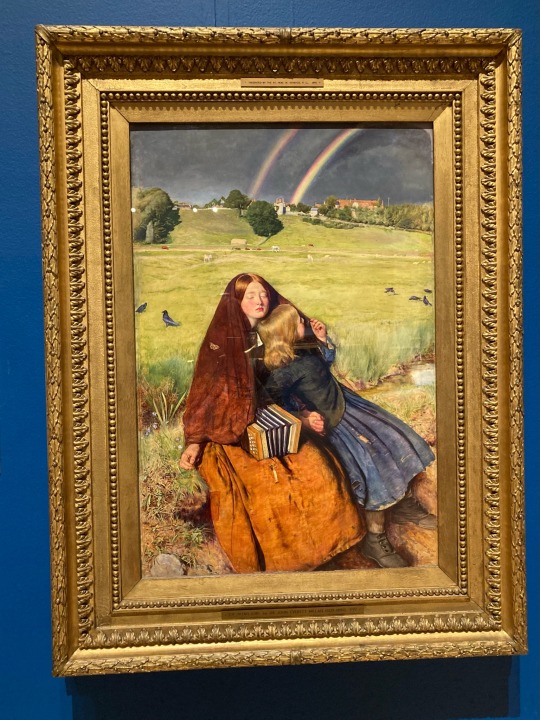
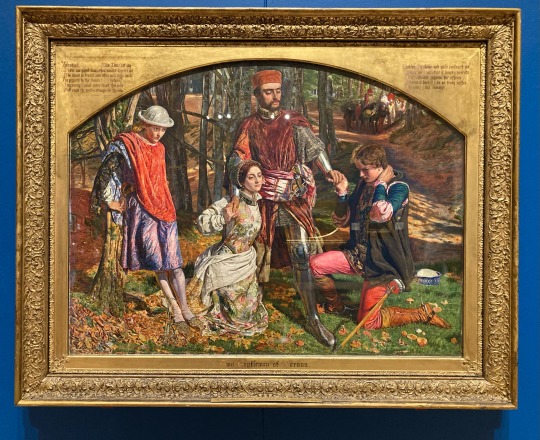

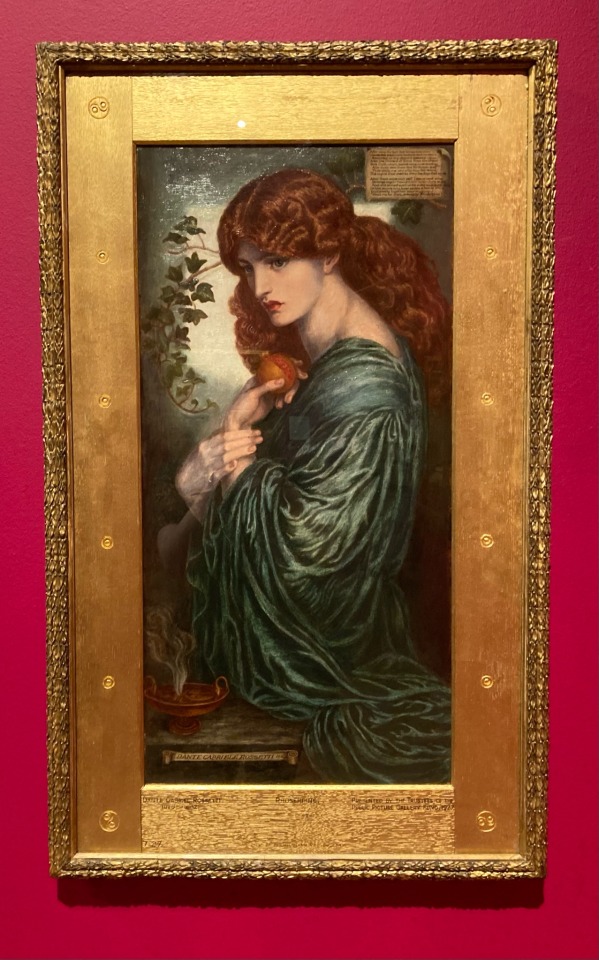
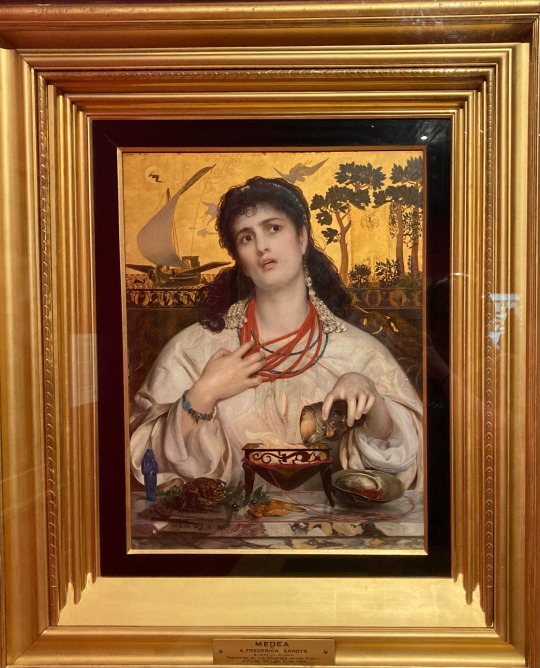
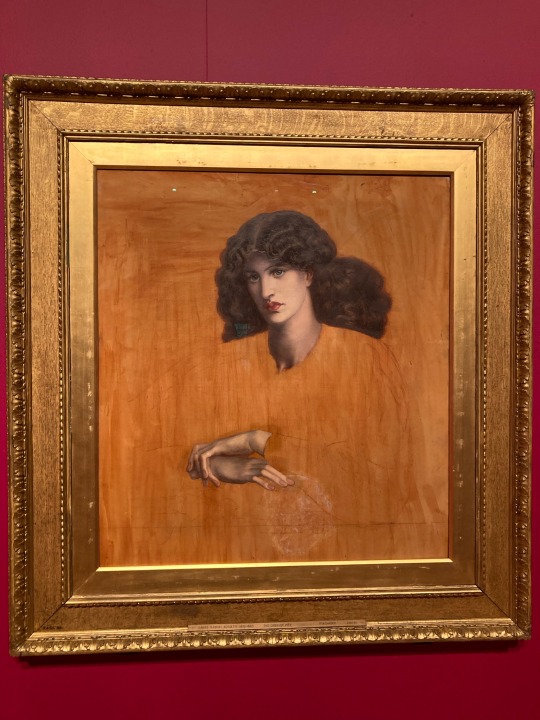
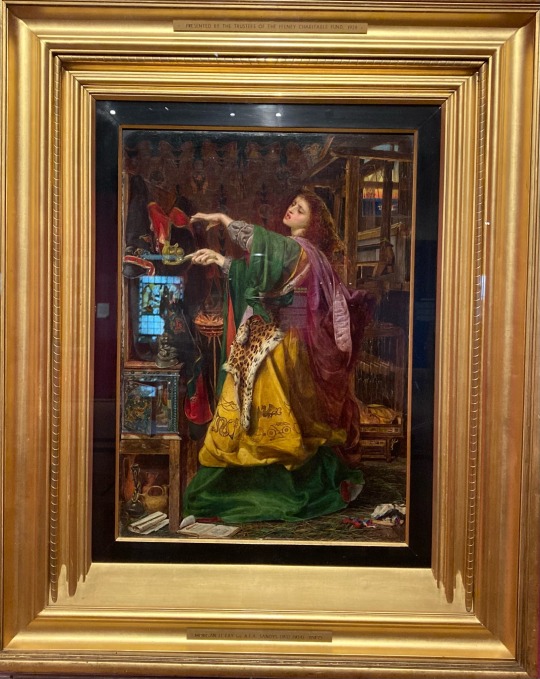
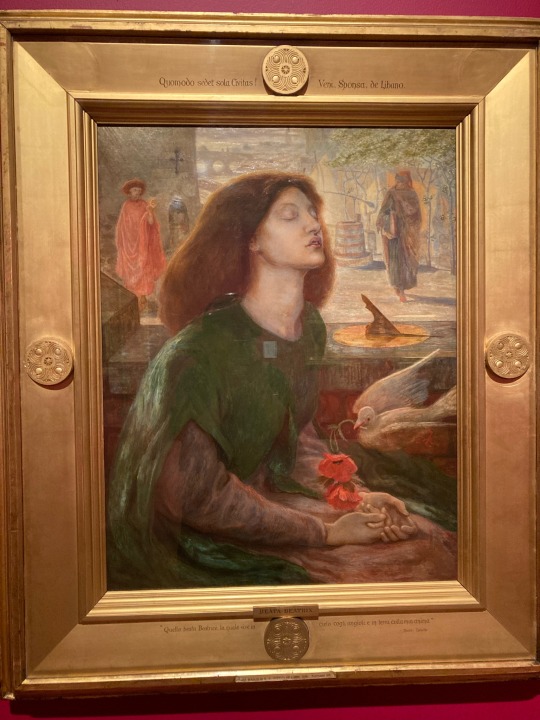
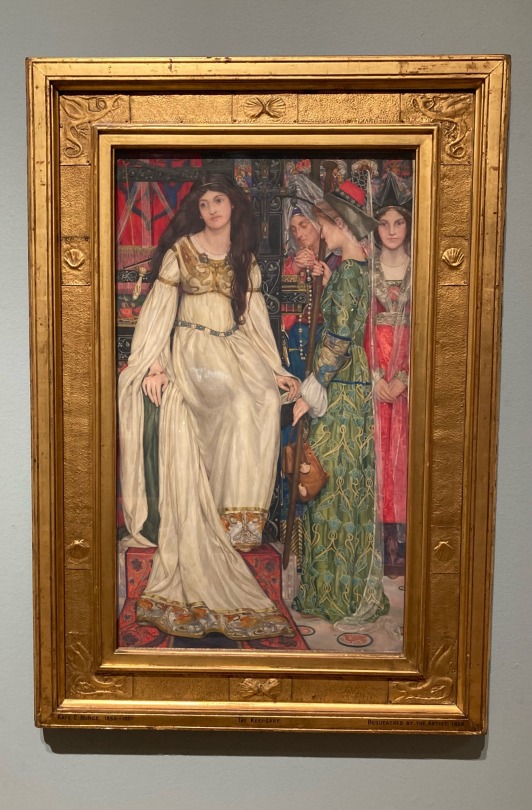
Victorian Radicals exhibition at the Museum of Birmingham (2024)
Haha so posting this here aswell because that’s what this blog was originally for but I guess I got sidetracked slightly by Malevolent and other things. But these pre-raphaelite pieces are absolutely gorgeous and I’ve been waiting years to see them in person and I just want to share them with everyone xoxo
First image : The Blind Girl - John Everett Millais (1856)
Second image : Valentine Rescuing Sylvia from Proteus - William Holman Hunt (1851)
Third image : Dante - William Holman Hunt (1882-1883)
Fourth image : Prosperine - Dante Gabriel Rossetti (1874)
Fifth image : Medea - Frederick Sandys (1868)
Sixth image : The Lady of Pity - Dante Gabriel Rossetti (1881)
Seventh image : Morgan le Fay - Frederick Sandys (1864)
Eighth image : Beata Beatrix - Dante Gabriel Rossetti (1877)
Ninth image : The Keepsake - Kate Elizabeth Bunce (1899)
More posts of the same to follow
#art history#birmingham museums trust#dante gabriel rossetti#edward burne jones#jane morris#elizabeth siddal#victorian radicals#pre raphaelite#arts & crafts#traditional art#oil paintings#john everett millais#kate elizabeth bunce#frederick sandys#william holman hunt
25 notes
·
View notes
Text















Delaware Art Museum 14/12/23
#art#art history#anthropology#academia#archaeology#pre raphaelite#painting#victorian#romanticisim#drawing#dante gabriel rossetti#elizabeth siddal#jane morris
14 notes
·
View notes
Text











Wood Engraving Wednesday
LINDA HOLMES
English wood engraver Linda Holmes (1950-2015) has provided engraved illustrations for three publications by the Lewisburg, Pennsylvania Press of Appletree Alley. One of those books is Printing as Art: William Morris & His Circle of Influence printed in an edition of 150 copies by Juanita Bishop and Appletree Alley's founder Bernard Taylor in 1994. The book presents correspondence held at Bucknell University by William Morris to T. J. Cobden-Sanderson, William Butler Yeats to his sister Elizabeth (Lolly) Yeats (co-founder of the Dun Emer Press and the Cuala Press), and Elizabeth Yeats to Emery Walker, as well as reprinting George Bernard Shaw's essay "Shaw on Modern Typography."
Linda Holmes trained as a journalist with the BBC and became a presenter for the network's Newsnight from 1980 to 1983. In 1985, she and her husband, BBC journalist David Holmes, retired from London to Walpole, in Suffolk. In 1989, Holmes attended Camberwell School of Arts and Crafts (now Camberwell College of Arts) to study wood engraving under Simon Brett and Yvonne Skargon. Holmes enjoyed a 25-year career as both a wood engraver and a painter until her death from pancreatic cancer at the age of 65.

View more posts with wood engravings!
#Wood Engraving Wednesday#wood engravings#wood engravers#women wood engravers#Linda Holmes#Printing as Art: William Morris & His Circle of Influence#Press of Appletree Alley#Bernard Taylor#Juanita Bishop#William Morris#Elizabeth Yeats#Emery Walker#T. J. Cobden-Sanderson#Dun Emer Press#George Bernard Shaw#fine press printing#fine press publishing
61 notes
·
View notes